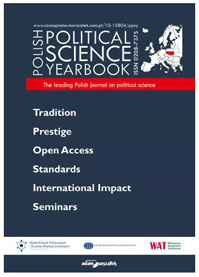Turkey in the Post-Arab Uprisings Era: Vacillating between Regional and Domestic Priorities
Turkey in the Post-Arab Uprisings Era: Vacillating between Regional and Domestic Priorities
Author(s): Stavros DrakoularakosSubject(s): Politics / Political Sciences, Politics, Political Theory, Political Sciences
Published by: Wydawnictwo Adam Marszałek
Keywords: Turkey; foreign policy; regional hegemony; hard power; Middle East
Summary/Abstract: This article analyses Turkey’s foreign policy concerning the status quo of the post-Arab uprisings through the prism of regional hegemony theory. The aspiring regional hegemon is identified through criteria applied to Turkish foreign policy, recontextualizing soft power initiatives of the previous decades with current hard power policies. The article suggests that while the Arab uprisings played a vital part in the redefinition of Turkish foreign policy, Erdoğan’s domestic priorities informed its recalibration to weather political difficulties and maintain power. The objective would be to challenge the status quo shepherded by the West during the twentieth century as articulated by the Mavi Vatan doctrine, the motivation to renegotiate the Lausanne treaty, the conversion of the Hagia Sophia into a mosque, and even the escalating Erdoğan-Macron verbal feud. Turkey’s aspirations for regional hegemony are evidenced in policies including military intervention, diplomatic and economic support to state entities, escalation of tensions with other regional powers, and Erdoğan’s consolidation of power over Turkish domestic affairs.
Journal: Polish Political Science Yearbook
- Issue Year: 53/2024
- Issue No: 1
- Page Range: 107-123
- Page Count: 17
- Language: English

